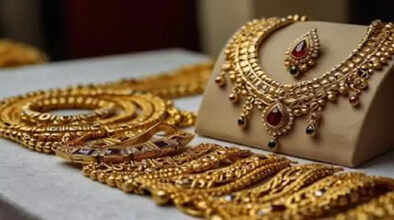GST on Old Gold Jewellery: Do You Need to Pay Tax When Selling Your Ornaments? Full Rules Explained

Gold prices have been climbing to record highs, prompting many people to sell their old jewellery for quick profits. But a common confusion arises: Do you need to pay GST when selling old gold ornaments? The answer depends on who is selling and to whom. The rules for ordinary individuals and gold dealers are very different under India’s Goods and Services Tax (GST) law.
GST on New Gold Purchases
When you purchase new gold jewellery, a 3% GST is levied on the transaction. This applies to both 22-carat and 24-carat gold. For buyers, this tax is straightforward—it’s simply added to the price of the jewellery by the jeweller. However, when it comes to selling old gold ornaments, the rules change significantly.
GST on Selling Old Jewellery
The applicability of GST on old jewellery depends on the seller’s status:
-
If an ordinary individual sells jewellery to a jeweller: No GST is charged. For example, if you decide to sell your old bangles, chains, or rings to a jewellery shop, the transaction is exempt from GST.
-
If a registered or unregistered gold dealer sells jewellery: GST is applicable. Dealers engaged in the gold trade cannot claim the same exemption that individuals enjoy.
-
When jewellers resell old jewellery: The sale is treated like a regular supply, and 3% GST is charged to the new buyer.
Reverse Charge Mechanism (RCM) and Old Gold
At the time GST was introduced in July 2017, the government clarified how Reverse Charge Mechanism (RCM) would apply. Normally, the seller is responsible for paying GST, but under RCM, the buyer bears the tax liability.
What the Law Says
According to Section 9(4) of the CGST Act, 2017, if an unregistered seller supplies goods to a registered buyer, the buyer must pay GST under RCM.
However, the law also makes an important distinction. If an ordinary person, who is not in the business of buying and selling gold, sells old jewellery, this is not treated as a “supply” under GST rules. Therefore, no GST is applicable in such cases.
Case of an Unregistered Gold Dealer
The situation changes when an unregistered gold dealer sells jewellery to a registered jeweller. In this case, GST applies, and the responsibility to pay falls on the jeweller, not the dealer. This liability is covered under the Reverse Charge Mechanism.
For ordinary people, this means there is no need to worry about GST while selling personal jewellery. The burden lies only on dealers and businesses engaged in gold trading.
Practical Advice Before Selling Gold
Since gold rates fluctuate daily, it’s always wise to check the 22K and 24K rates in your city before visiting a jeweller. This helps you avoid overpaying or underselling your ornaments.
If you believe gold prices may rise further, some jewellers even allow you to block the price by paying a small advance. You can then purchase ornaments at the agreed price later, regardless of market changes.
Key Takeaways
-
No GST for individuals selling personal gold jewellery to jewellers.
-
GST applies when gold dealers—registered or unregistered—sell to jewellers.
-
Jewellers reselling old gold must charge 3% GST.
-
Under Reverse Charge Mechanism, tax liability shifts to the buyer if the seller is unregistered.
-
Always verify local gold rates before making transactions.
In summary, if you’re simply selling your personal jewellery to a jeweller, there’s no GST liability on you. The tax rules only come into play when dealers are involved in the transaction.

